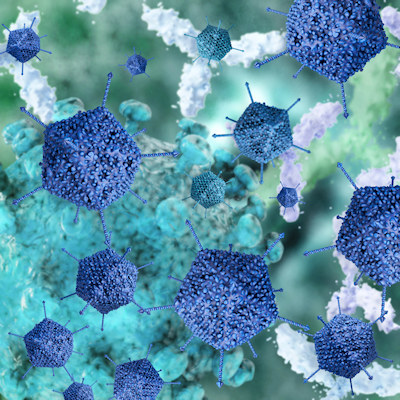August 2, 2022 -- A gene therapy, patented through the University of California, San Diego (UCSD) and the Department of Veterans Affairs (and licensed to Eikonoklastes Therapeutics), measurably delayed disease onset in humanized mouse and rat models of familial amyotrophic lateral sclerosis (ALS).
As part of a study published on July 11 in the journal Theranostics, researchers injected a harmless adeno-associated viral vector carrying synapsin-Caveolin-1 cDNA (AAV9-SynCav1) into the spinal cords of familial ALS mice and found that SynCav1 protected and preserved spinal cord motor neurons and extended longevity in the mice. Similar results were observed in subsequent experiments with a rat model of ALS.
"Because the neuroprotective efficacy afforded by SynCav1 occurred independent of targeting the known toxic monogenic protein (i.e., mutant hSOD1), these findings suggest that SynCav1 may serve as a novel gene therapy for other neurodegenerative conditions in addition to ALS and [Alzheimer's disease]," senior author Brian Head, PhD, adjunct professor in the department of anesthesiology at UCSD School of Medicine, said in an August 2 statement.
At the same time, Head said "it is essential for further studies to determine the effect of SynCav1 on disease progression at later stages of the disease."
Copyright © 2022 scienceboard.net









